
Have you ever asked yourself what is the relation between education and salaries in the IT field, is there any incidence? I have.
Nowadays this is very interesting because most of the times a professional degree is often not necessary to reach a developer role in the top companies. You, your colleages and I may have different point of views about it.
But, what do the data suggest about this? To going further with this broad question, I used Stackoverflow’s 2017 Annual Developer Survey.
I checked all the available data within the dataset and I came across with 3 questions that I think it would be interesting to answer.
1. What is the relation that has the parents’ education on the education and salary of the respondents?
Here you can see the proportion of respondents with their parents having a certain education.
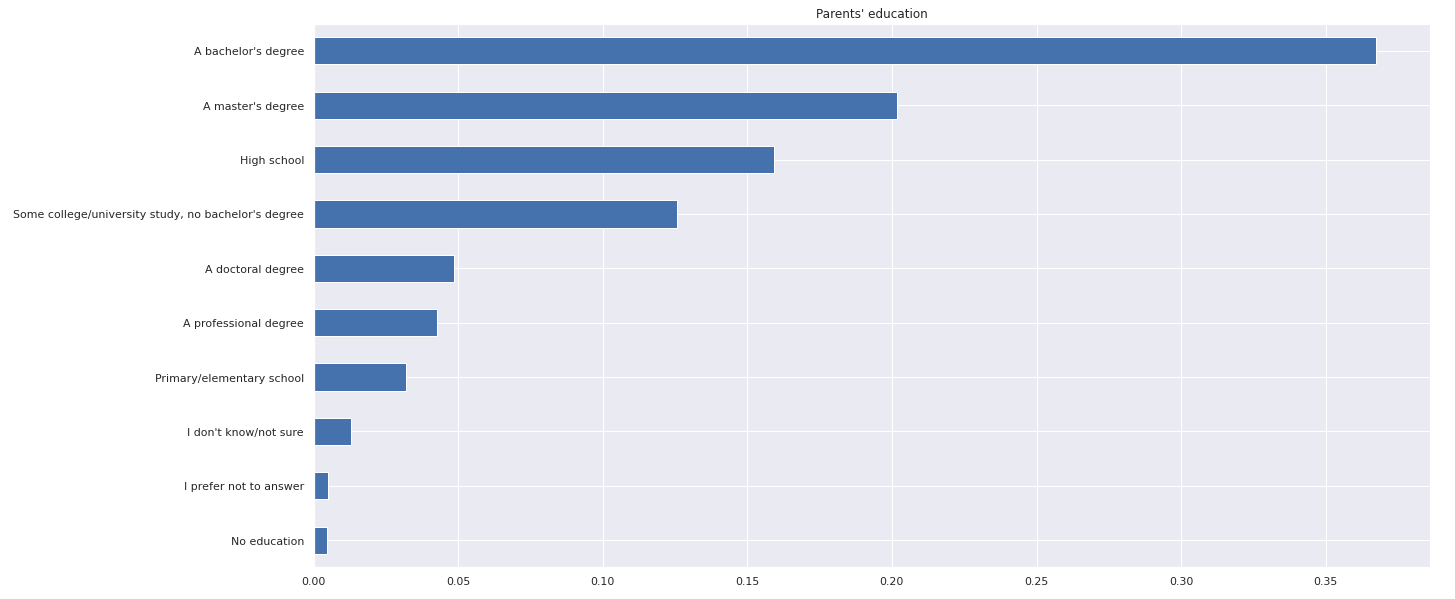
More than 60% have a professional degree either it is a bachelor’s, master’s or doctoral. However is interesting to note that High school has almost 16% of proportion.
This is interesting but does not answer our question. Next, the dataset was aggregated by the parents’ education to calculate the respondents’ average salaries based on that.
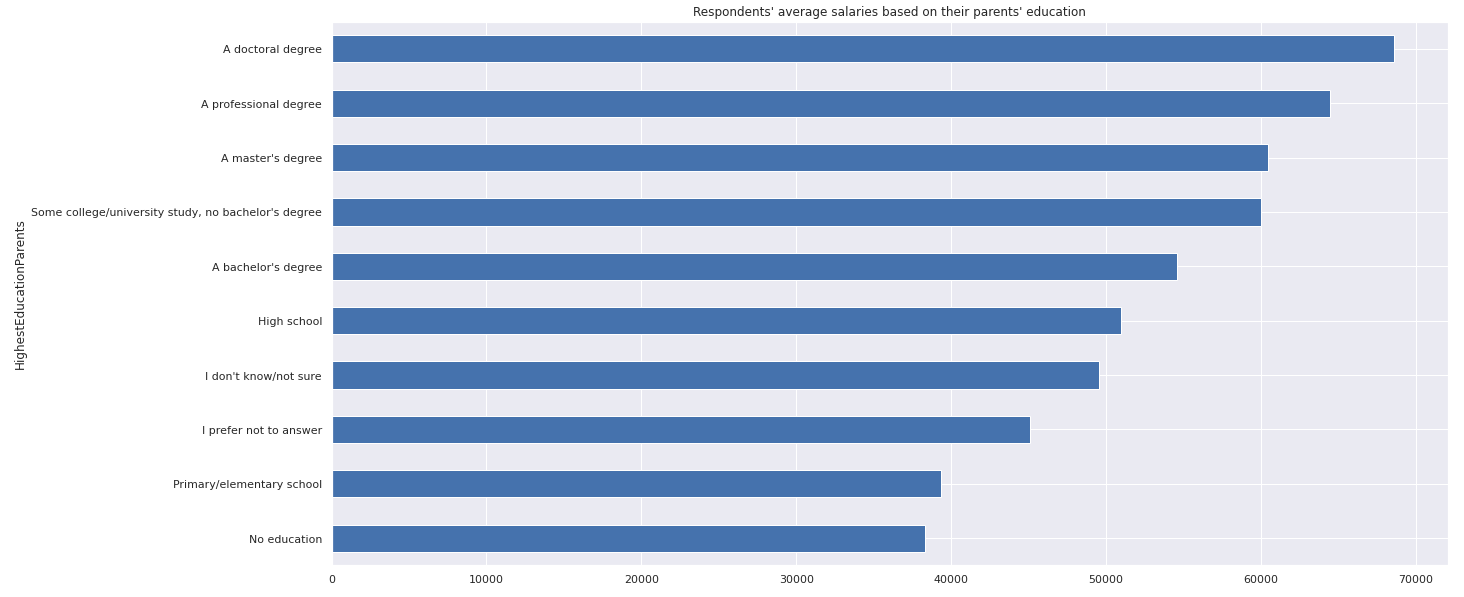
As you can see, the parents’ education has a clear relation in the respondents’ salaries. The respondents present a higher salary when their parents have higher education. However, this means nothing about the respondents’ salaries based on their education.
To answer this, the dataset was aggregated by the respondents’ education to calculate thei avegare salaries based on it. Let’s check this out:
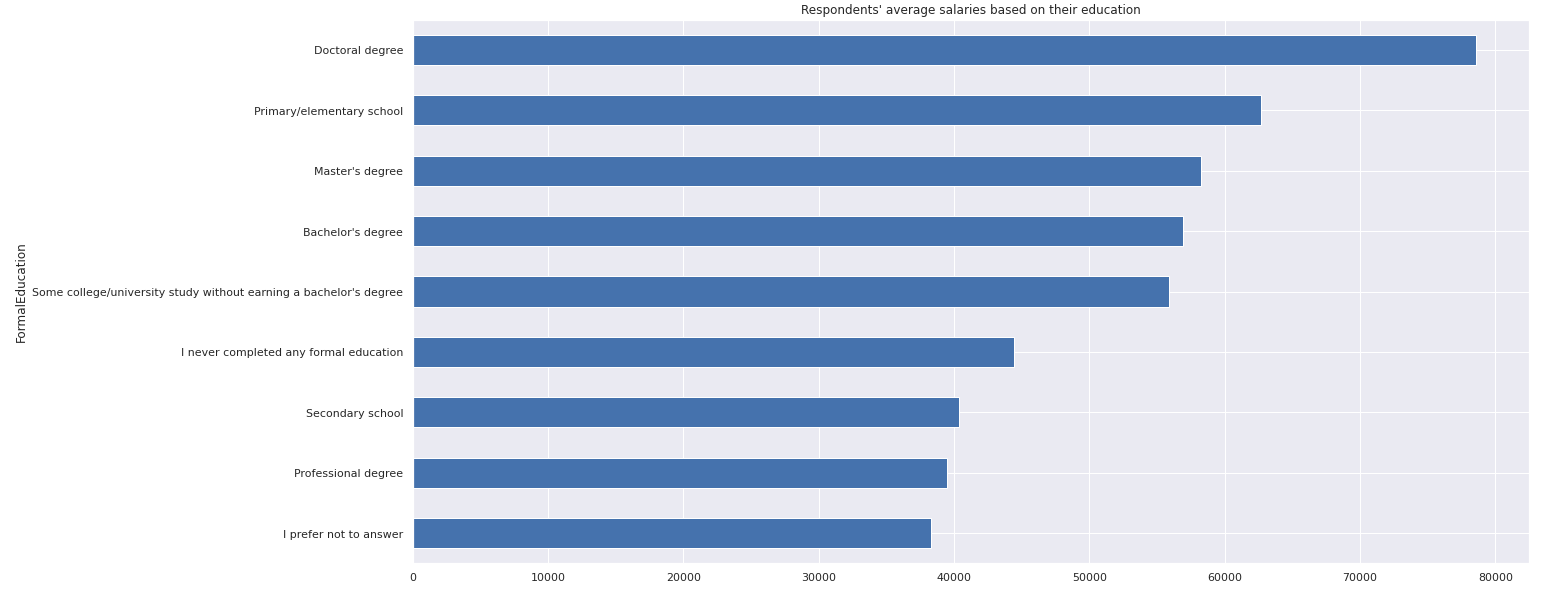
This is interesting, take a look at the second element in the above chart…the second highest salary, with elementary school only!! As we thought, a professional degree is often not necessary in the IT field.
Furthermore, we can conclude that the parents’ education has an impact on the respondents’ education. Take a look at the below chart to make sure of it. The number of respondents with higher degrees(except for the Doctoral degree) is greater than the corresponding number of their parents.
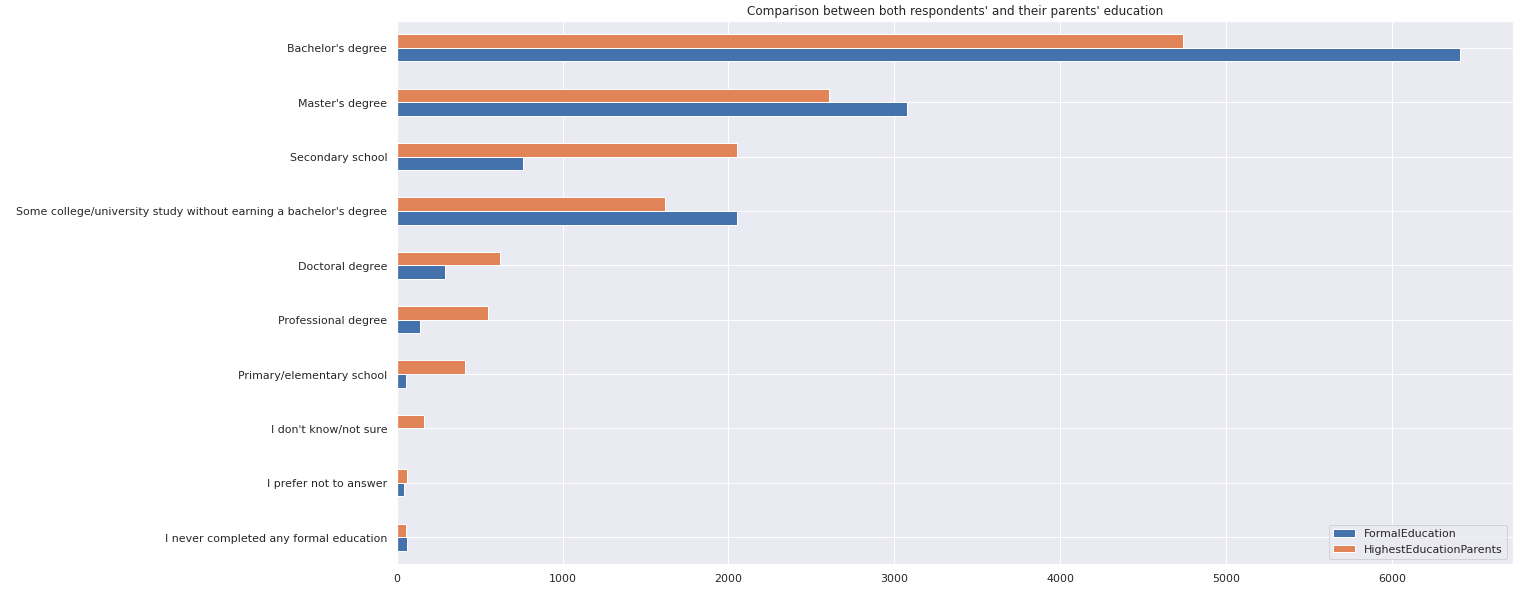
Another topic to take into account when analyzing different salaries is the job satisfaction based on it. So let’s dive deeper about it.
2. Does overpayment increase the job satisfaction?
Here, three main things were really important to make any conclusion:
- Whether the respondents are overpaid
- Company type
- The importance for them of their functions in relation to their salaries. Specifically, the item in the survey is “I don’t really care what I work on, so long as I’m paid well”.
First, take a look to the job satisfaction based on overpayment answers(in the survey)
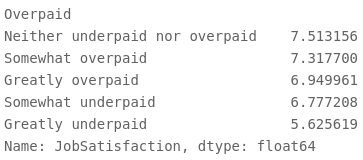
Definitely, the people that are overpaid have higher job satisfaction. However, the people that is somewhat underpaid doesn’t seem unsatisfied with their job.
Furthermore, is interesting to note that the people which is greatly overpaid have a job satisfaction less than the one of the people who are neither underpaid nor overpaid.
Could the type of company or the interest in what they work on influence on their job satisfaction?
To answer that I focused on the subset of respondents that are greatly overpaid. This is what I found about this subset’s job satisfaction based on their company type and the importance for them of their functions in relation to their salaries:
| Based on company type | Based on functions importance |
|---|---|
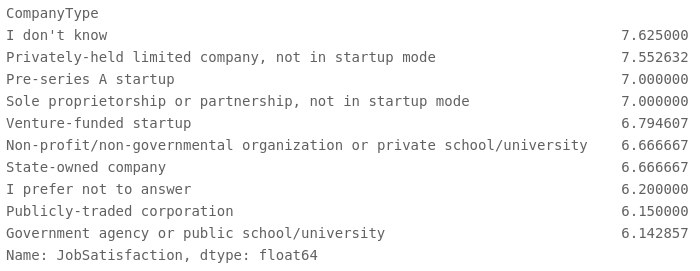 |
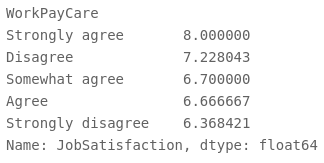 |
Visuals of the above information
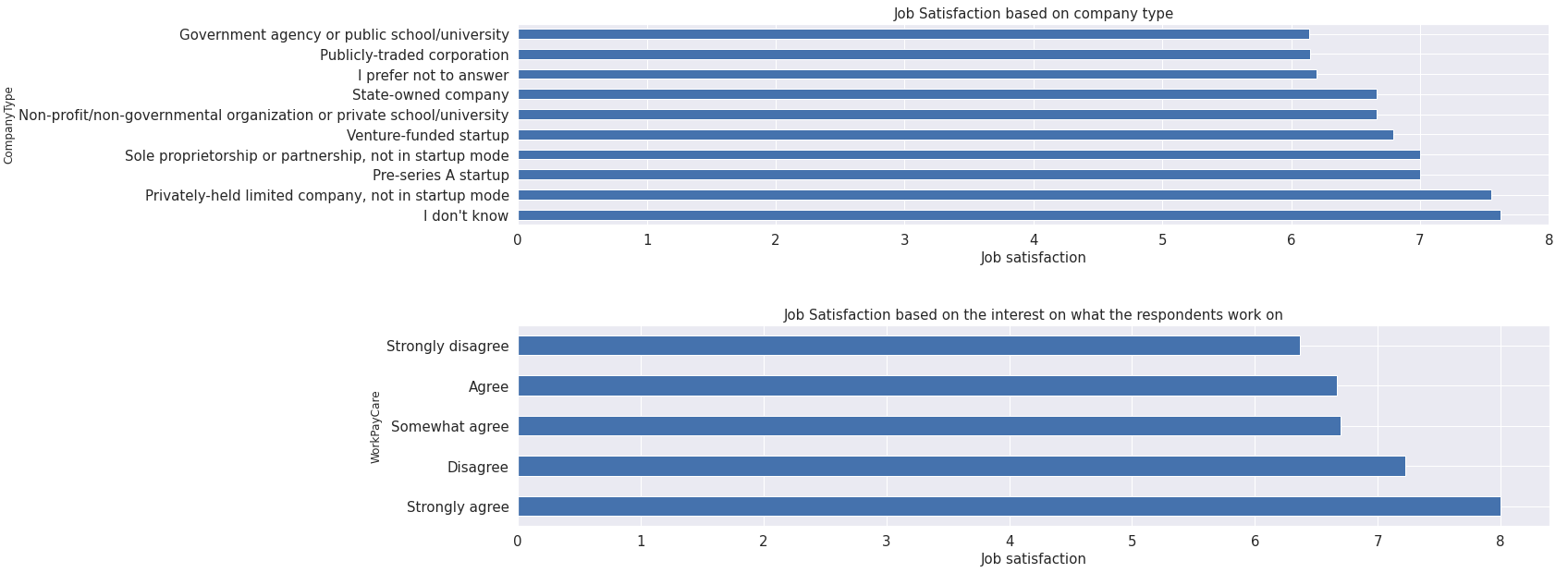
Well, first of all, remember the above aggregates are based only on the data of the respondents who are greatly overpaid.
There’s and interest pattern. The companies that have job satisfaction between 6.1 and 6.7 are NGOs or government companies. However we cannot conclude nothing from it, there’s no clear evidence and the number of company types is skewed:
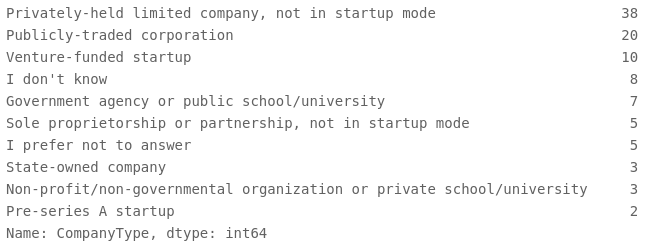
On the other side you can take a look at the answers related with the workPayCare. The people who answered Strongly disagree have a job satisfaction of 6.36, the lowest!
This means that there’s a proportion of respondents within this subset that are not entirely satisfied with their functions within their companies, no matter if they are overpaid.
So, the job satisfaction level of the people who are greatly overpaid may be influenced by the work environment. Moreover, the repondents’ functions within their companies may have another factor of influence.
You can see that the job satisfaction can vary depending on different factors. Actually, many people looks for a new job even tough they have full time jobs. That situation leads as to the next question:
3. What is the percentage of people who are currently employed but looking for a new job? Is this people underpaid or their job satisfaction is low?
For this questions I used the employment statuses and whether there is a job seeking.
For the employment statuses I used the following answers:
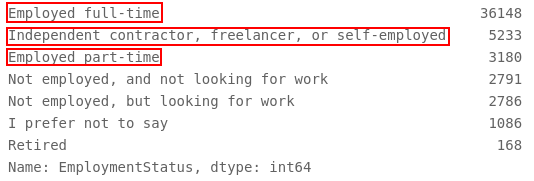
For the job seeking statuses I used the following answer:

From the entire dataset 6.46% of respondents are employed but looking for a job. Let’s check if these people are underpaid and how is their job satisfaction.
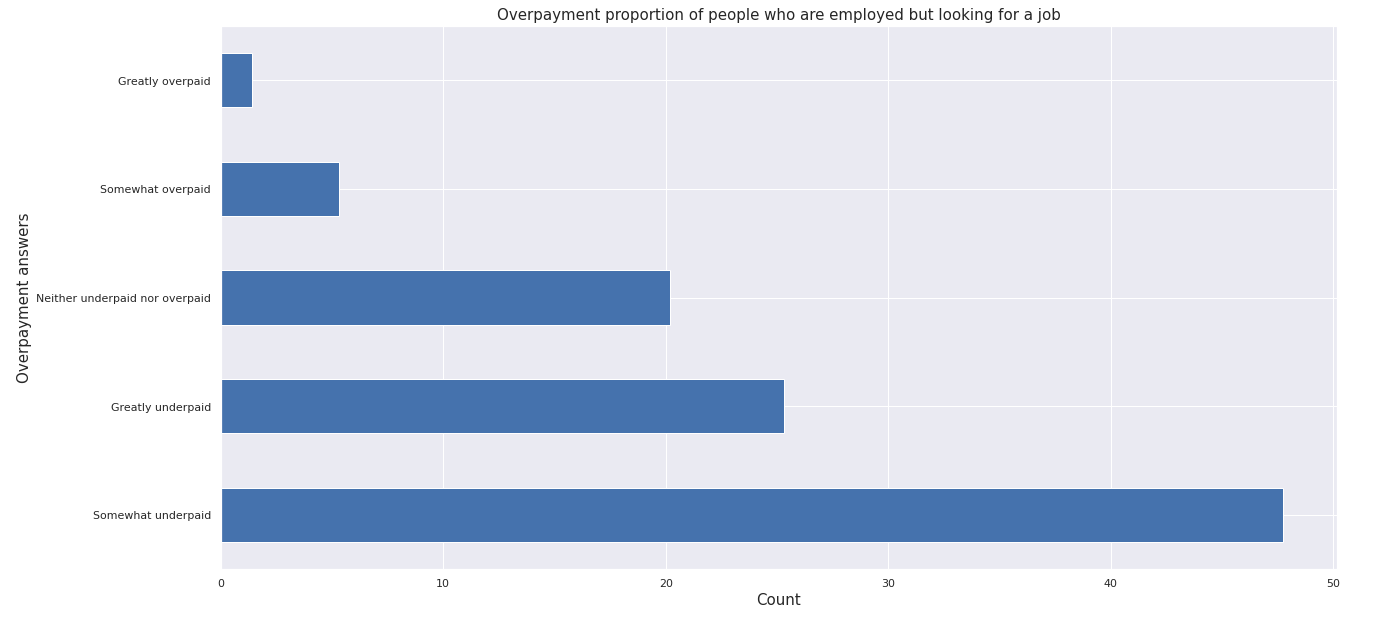
It is clear that most people in this subset are underpaid, 73% aproximately. Though this would be a good metric to conclude about the reasons, there is a lot of uncertainty because the 70% of the respondents of this subset didn’t answer the item indicating the overpayment status.
But, how about their job satisfaction?
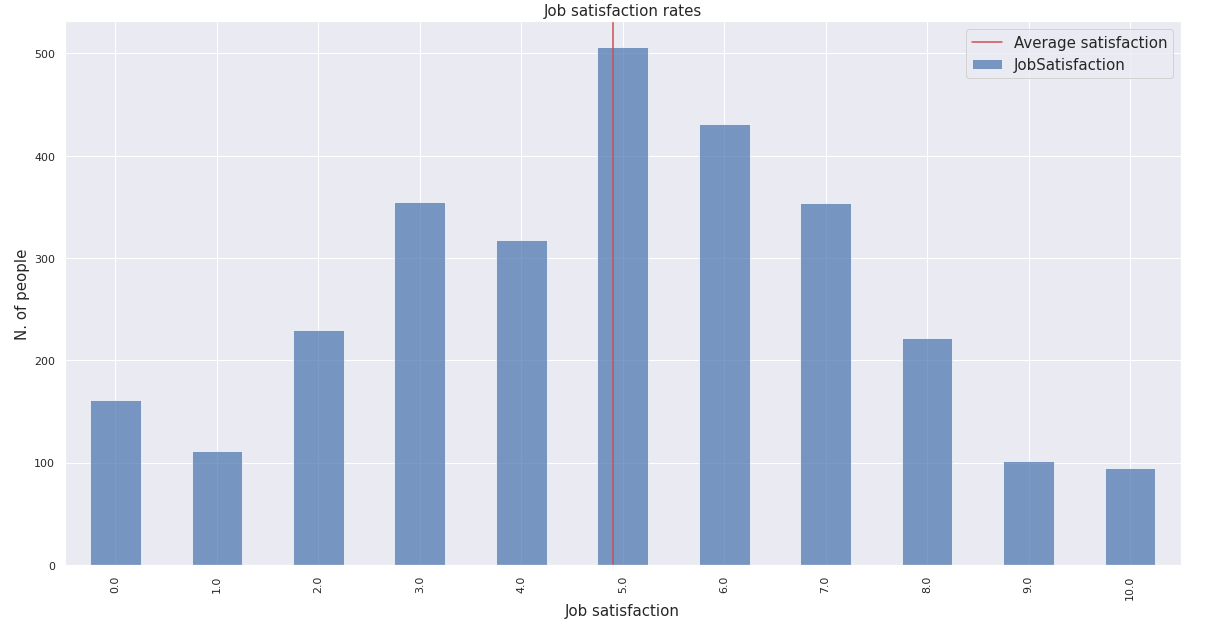
As you can see in the above chart, the job satisfaction fractions are greater in the left side from the average. This tell us that people within this subset often have a lower job satisfaction than the average: 4.9.
Conclusion
In this article, we took a look at some factors that have an impact on the job satisfaction of the developers. Furthermore, we looked at the relation between the respondents’ education level and their parents’.
-
We found that the higher the education level of the respondents’ parents, the higher the average salary is for the respondents.
-
In some cases the overpayment impacts(possitively) the job satisfaction of the people. Nevertheless, extra factors such as the work environment and the functions of the people in their companies can cause satisfaction to decay.
-
People who are employed but actively looking for a job have low job satisfaction. Also, we found that the reason for this may be that they are underpaid in some way.